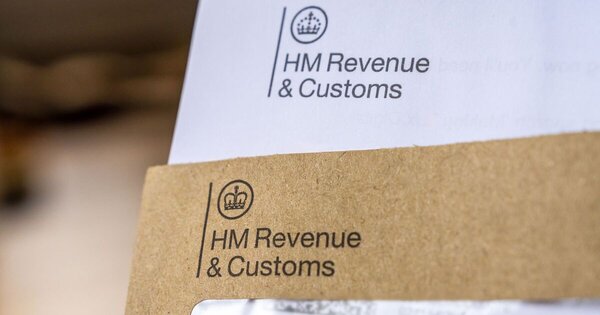Let’s Break This Down Together…
Selling on Depop can feel like a win-win – clear your wardrobe, earn a bit of extra cash. But when does a casual side hustle turn into something HMRC wants a slice of?
This article walks you through when tax kicks in, how to know if you're ‘trading’, and what to do if you go over the £1,000 threshold. We’ll also cover registering for Self Assessment and how to keep track of your earnings and expenses.
By the end, you’ll know exactly where you stand and how to stay on HMRC’s good side – no stress, no surprises. Let’s dive in.
Understanding Depop Tax: When HMRC Comes Knocking
HMRC gives you a £1,000 trading allowance each tax year. This means if your total income from Depop stays under £1,000, you don’t need to report it or pay tax. But what happens when you cross that £1,000 threshold? That’s when you’ll need to register for Self Assessment and declare your earnings.
The taxman makes an important distinction between “trading” and just selling personal items. If you’re buying stock to resell or regularly sell lots of items, HMRC will likely see you as trading. HMRC also considers your intention if your intention is to make a profit from what you sell, your sales are more likely to be taxed.
Selling your own pre-loved items occasionally at a loss isn’t usually considered trading. For example, selling that jacket you bought for £50 last year for £30 on Depop won’t trigger tax concerns. Such sales are generally not taxed.
The new rules are designed to prevent tax evasion among online sellers. However, these changes will only affect a small proportion of Depop users who sell frequently or for profit.
When to Register as Self-Employed for Your Depop Shop
If your Depop income goes over £1,000 in a tax year, you need to register for Self Assessment. The deadline is 5th October after the tax year ends (which runs from 6th April to 5th April). Completing your tax return accurately and on time is crucial to avoid penalties and ensure you meet all HMRC requirements.
Already have a regular job? You can still be employed and self-employed at the same time. Many successful Depop sellers balance both. As your side hustle grows, you might consider forming a company for greater tax efficiency and legal protection compared to operating as a sole trader.
Missing the registration deadline can lead to penalties. It’s best to register as soon as you realise you’ll exceed the threshold. I once helped a friend who’d made £1,200 from Depop sales but hadn’t registered. We quickly sorted her registration, and she avoided what could have been hefty fines.
If you’re unsure whether you need to register, keep track of your sales anyway. It’s much easier than trying to piece together your records later.

Keeping Track of Your Depop Business
Good record-keeping is your friend when selling on Depop. Save screenshots of sales and keep receipts for postage costs and packaging materials. HMRC may now have access to detailed sales data from platforms like Depop, so accurate records are more important than ever for tax compliance.
A simple spreadsheet can work wonders for tracking income and expenses. Note down every sale and every cost related to your Depop activities, and make sure to track every spend associated with your Depop business.
HMRC requires you to keep records for at least 5 years after the 31st January submission deadline. This might seem excessive, but it’s essential for tax compliance.
Remember to track Depop’s 10% fee and payment processing fees too. These are legitimate business expenses that reduce your taxable profit. Any cost that is wholly and exclusively for your Depop business, such as postage, packaging, or platform fees, can be counted as an expense.
Working Out Your Taxable Profit
Your taxable profit isn’t just your total sales. It’s what’s left after you deduct your allowable expenses. Allowable expenses include Depop fees, payment processing fees, and postage costs. You can also claim for packaging materials and the cost of items bought specifically for resale.
If you use your phone for business, you can claim a portion of your bill. Travel costs to post items or source stock are also allowable expenses. If you register as a company, you may be subject to corporation tax on your profits instead of income tax, which can offer different tax advantages.
If you use the £1,000 trading allowance, you can’t claim any expenses. Sometimes it’s better to claim your actual expenses if they’re more than £1,000. As your side hustle experiences growth and your profits increase, your tax situation may change, and you might need to register as a business or company.
It’s important to know the difference between a hobby business and a formal business for tax purposes. If your selling activity is just a hobby and not intended to make a profit, different tax rules may apply compared to running a formal business.

How to File a Self Assessment for Your Depop Sales
Filing a self assessment tax return for your Depop sales might sound intimidating, but it’s a straightforward process once you know the steps. As a Depop seller, you’re classed as self employed, and it’s your responsibility to report your income and expenses to HMRC. Here’s how to make sure you’re on the right side of the taxman:
- Register as a sole trader If your Depop earnings go over the £1,000 trading allowance, you’ll need to register as a sole trader with HMRC. This is the first step in becoming officially self employed. Registration can be done online and only takes a few minutes just have your personal details and National Insurance number handy.
- Gather your records Keep all your Depop sales records, including receipts, invoices, and bank statements. Make sure you also track any fees charged by Depop or other online marketplaces like eBay, as well as postage and packaging costs. Good record-keeping makes the tax return process much smoother.
- Calculate your income Add up all the money you’ve made from selling on Depop and any other platforms. This total income is what you’ll report to HMRC. Don’t forget to include any side hustle earnings from similar online marketplaces.
- Deduct your expenses List all your allowable business expenses things like postage, packaging, Depop fees, and any other costs directly related to your selling. If you use part of your home for your Depop business, you may be able to claim a proportion of your household bills too. Deducting these expenses from your income means you only pay tax on your actual profits.
- Complete your tax return You can fill in your self assessment tax return online via the HMRC website. The form will ask for your personal details, business information, total income, and expenses. The system will calculate how much income tax you owe based on your profits.
- Pay your tax bill Once your tax return is submitted, HMRC will let you know how much tax you need to pay. You can pay your bill online, by phone, or by post. Make sure you pay by the deadline to avoid any late payment penalties.
Common Tax Mistakes Depop Sellers Make
Thinking you don’t need to declare because “it’s just pocket money” is a common mistake. HMRC doesn’t care how you view your selling – if you’re over the threshold, you must declare. It’s important to understand your taxes as a Depop seller, including your obligations and any new regulations that may affect you.
Not keeping proper records from day one catches many sellers out. Start tracking everything, even if you’re below the threshold now. The effort you put into maintaining good records will make things much easier when it comes to taxes.
Forgetting to claim legitimate expenses is throwing money away. Every business cost reduces your tax bill, so track them carefully.
Mixing personal and business transactions makes tax time harder. Consider a separate bank account for your Depop activities if you’re selling regularly.

From Wardrobe Clear-Out to Thriving Side Hustle
Getting your Depop tax right isn't as daunting as it might seem. Start by working out if you're truly trading or just having an occasional clear-out.
Keep good records even if you're below the £1,000 threshold. Your side hustle might grow faster than you expect.
When in doubt, it's always better to check with HMRC or get tax advice. This approach is much safer than risking penalties down the line.
Remember that paying tax on your Depop income is actually a good sign. It means your side hustle is becoming successful!
Tax Tools That Work as Hard as You Do
Staying on top of your Depop tax shouldn’t give you a headache when you’re busy sourcing, listing and shipping items to customers. The UK’s first personal tax app, Pie tax, was built with side hustlers in mind. We track your Depop sales alongside any other income streams you have.
Our app automatically flags when you’re approaching tax thresholds. We also help identify expenses you might miss, potentially saving you hundreds in tax.
Pie tax offers free tools for Depop sellers, making it easy to manage your finances and taxes without extra cost. We’ll remind you of important tax deadlines and simplify the Self Assessment process. This becomes invaluable when your Depop shop takes off.
Want to see how we can make your tax life easier? Check out Pie tax to learn more about our seller-friendly features.

Quick and Easy Guide to Add Income Source for Side Hustle
Follow these steps to track multiple income sources and adding work related expenses.
To create an income source, find the 'Quick Add' button in the middle of the navigation bar, select 'Create Income Type' from the top of the screen to open the options menu. Fill in the details for your chosen income type, then Save. You can always view or edit this income in “All Incomes.”Step 1

Swipe right on any eligible transaction to add it as an expense in the bookkeeping section you want to declare on your tax return, moving it to the ‘expense’ tab.Step 2












